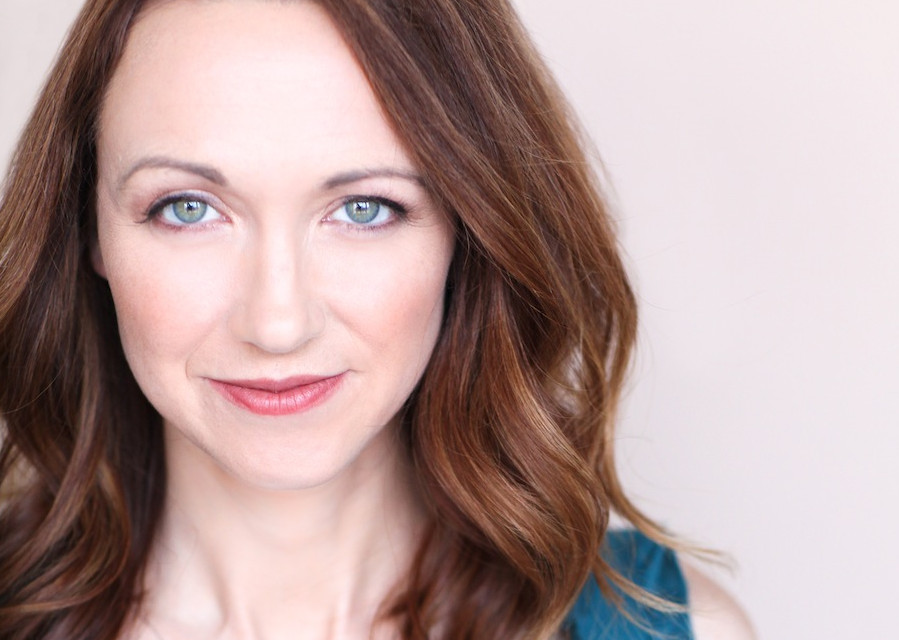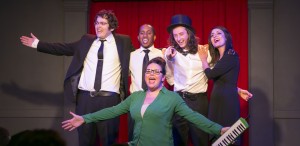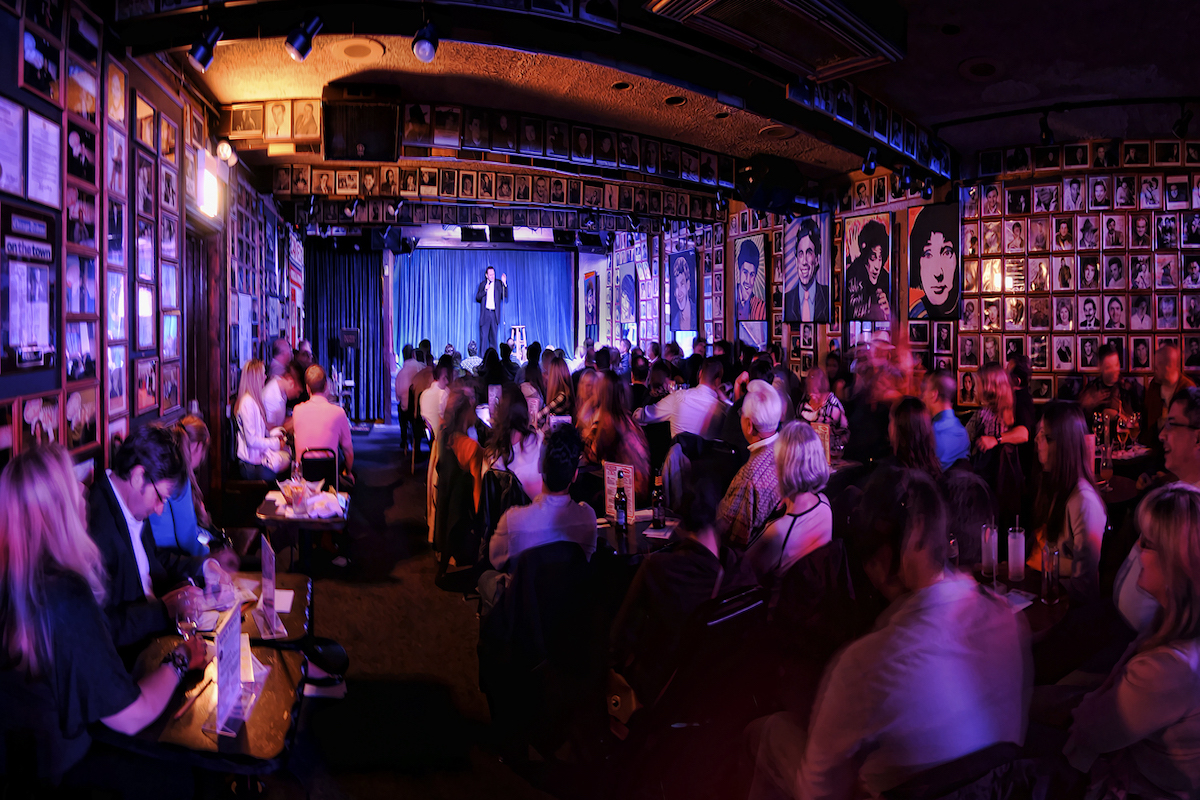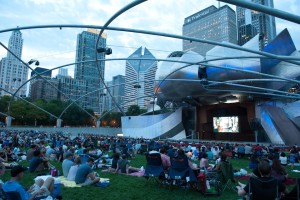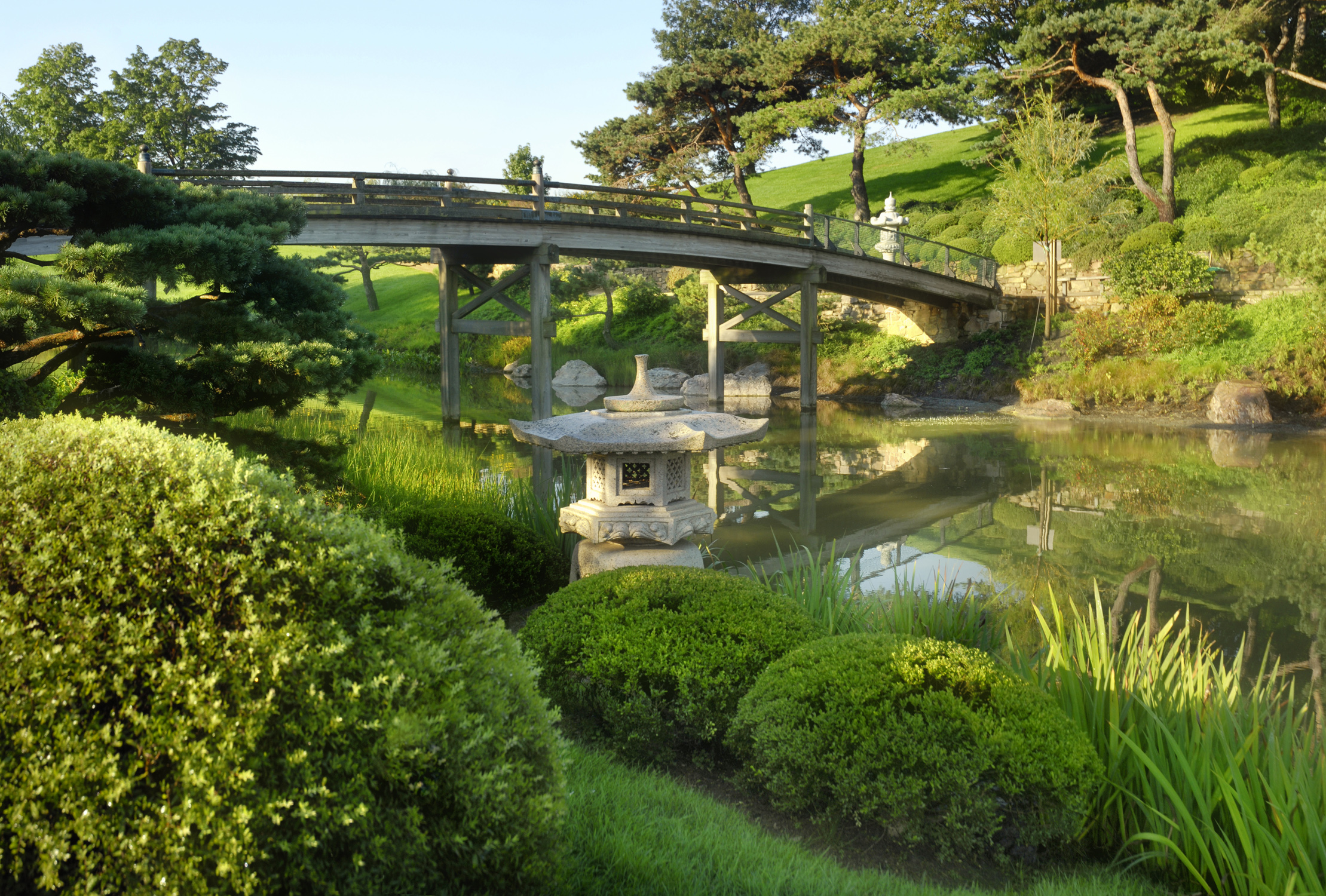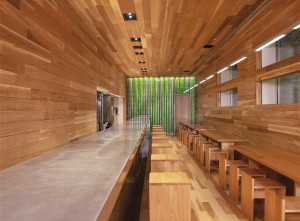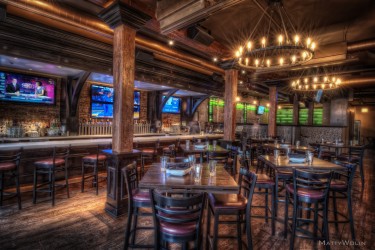We Ask, They Answer: Q&A with Second City’s John Sabine
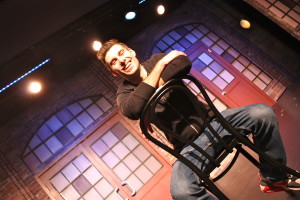
An interview with John Sabine, star of Second City’s What the Tour Guide Didn’t Tell You, now playing at Up Comedy Club
By Trent Modglin
We all love Chicago, but we also don’t necessarily mind making fun of our fair city, either. You know, the stereotypes, baseball’s loveable losers on the north side, shady politics, pot holes the size of a swimming pool. What the Tour Guide Didn’t Tell You is Second City’s hometown revue that pulls from 52 years of classic scenes and songs, lovingly making fun of Chicago along the way.
One of the stars of the show, John Sabine, like so many before him, has tirelessly worked his way up the ranks of the sketch and improv-comedy circuit, studying at Second City’s training center and performing in groups at iO and various theaters around Chicago, as well as for Second City on cruise ships, touring companies and, currently, in What the Tour Guide Didn’t Tell You at Up Comedy Club.
Sabine sat down with The Real Chicago to discuss inside jokes, not being that guy and ho w his show is an “honest assessment of a world-class city.”
w his show is an “honest assessment of a world-class city.”
Q: I know you have an acting background, but at what point in your life did you decide that making people laugh was something you wanted to do for a living?
A: It probably was very early on. In high school I was voted most likely to be a comedian.
Q: Trying to make the girls laugh?
A: Well, I went to an all-boys school (laughs), so it didn’t really matter… but I did all this theater stuff and stupid musicals in high school. I also did some improv in high school, but then in college is when it really took off. I visited Loyola here in Chicago while I was looking at colleges, and I saw a Second City show. And I think that was the seed. I remember the cast and what they did. … It was a college visit by myself, and it was my first time going to a big city. I’m from Dallas originally, and this is huge compared to Dallas. And no parents, so I think that’s when it was all planted. When I found out that Second City existed, I thought, ‘This is the coolest thing.” It itched me right where I was scratching. Oh, wait, I mean the other way around. … Plus, everyone in high school thinks they’re funny.
Q: True. A lot of times it goes beyond that for some people, even if they’re not.
A: Exactly. And I’m probably still living that delusion in life. If I were to be an egomaniac and make a timeline of my life, that (visit to Second City) would be a bullet point. That was a great memory, maybe because I was romanticizing it all.
Q: Who or where do you think you get your sense of humor from?
A: I think I get my sense of humor from my family. I come from a big Irish Catholic family, and watching all of my uncles do bits — I think I wanted to play along.
Q: Do you ever feel like when you tell people you’re a performer with Second City, they immediately want you to entertain them and make them laugh?
A: I haven’t had that happen too much. It’s more that thing with my relatives and parents where they say, “I better be careful what I say around you, or I’ll end up in your routine.” But I don’t think they understand. They should just come see a show. In Chicago though, I will say this: Even if you’re doing one show a week somewhere and you tell someone, they’re like, “Oh, really? Tell me about it,” which makes me feel like comedy is part of the city and a part of the cultural landscape. And that’s a cool feeling.
Q: And it does feel like a fraternity, at least in my experience in knowing sketch and improv comedians. Everyone knows everyone, don’t they? It’s almost incestuous.
A: It is. You see this person here and this person there. I ended up working with a guy I saw (in a Second City performance) on my college visit. And here we were, doing a show together 10 years later in Dallas for Second City. I mean, that’s crazy. I didn’t put it together until halfway through our show. I figured, what is the law of averages? And everyone here is always so nice. That’s the thing that I was most shock ed about, moving to Chicago. It’s a fairly competitive landscape, but everyone looks at it like we’re all in this together, so we better make nice.
ed about, moving to Chicago. It’s a fairly competitive landscape, but everyone looks at it like we’re all in this together, so we better make nice.
Q: I’ve seen that a lot. It’s more the stand-up comedians who seem more bitter and cynical toward each other.
A: And I don’t blame them, either, because it’s them against the world. It’s different because we’re a group of people on stage together. I mean, you can’t roll your eyes at somebody on stage and expect them to play nice. It really is a community, which is weird. Every now and then it almost feels like some sort of high school camp.
Q: Are you ever surprised with how quick the comedy is at Second City? I look around at the audience sometimes and wonder if we’re catching just a percentage of the humor.
A: I am. Some people just seem to have a mutant power. Their brain just goes so fast. The audience always surprises me. No, surprise is the wrong word there because I always think these (audience members) are people who are like doctors and lawyers, so why wouldn’t they be able to keep up? They’re probably professionals with real jobs. We’ve got to give them credit because they’re right on board. … They know it’s not a movie, they know it’s interactive and they’ve got to be on their toes.
Q: For somebody who hasn’t seen the show, what can you tell them about What the Tour Guide Didn’t Tell You? There’s a lot of inside jokes, the stigma of Chicago politics and things that maybe some folks from Southern California wouldn’t quite get.
A: It does a good job of making people who know Chicago intimately laugh. Stuff you would only know. One of the first scenes is about the different neighborhoods and their stereotypes. My parents have never lived here, but they’ll get the joke structure. You’ll laugh. Some of the problems that Chicago is dealing with are very similar to the problems other cities are dealing with too. The specifics might change, but it does a good job of introducing out-of-towners to Chicago. And people from Chicago really seem to get it and like it, which is an added bonus. And then we get to improvise, and when we’ve asked for (ideas to get started), we can sometimes get some really, really deep cuts.
Q: What is the most exciting thing about Second City and improv, and also the most intimidating?
A: For me, it’s almost the same answer. The most exciting thing is the people you work with. My cast is made up of people I looked up to. And they’re not old, it’s just that I feel very lucky to be able to do a show with them. But at the same time, coming into a show, I felt very intimidated because you respect them so much.
Q: Like you hope you can just keep pace. Not to short-change you in any way…
A: (Laughs) No, please, short-change away. But you’re right. You want to make sure you don’t affect the show in a negative way because they’re already on this certain level. Whenever I’m asked what the best part of working here is, I always say I get to work with these great people. They’re very talente d, and some are getting pulled off to do different mainstage shows or TV. … And that’s how the system works. But honestly, I was scared to death the first couple weeks, just trying to keep up. I didn’t want to be that guy. You never want to be that guy. In any situation. But here, it’s more public if you’re in front of 250 people and you’re that guy.
d, and some are getting pulled off to do different mainstage shows or TV. … And that’s how the system works. But honestly, I was scared to death the first couple weeks, just trying to keep up. I didn’t want to be that guy. You never want to be that guy. In any situation. But here, it’s more public if you’re in front of 250 people and you’re that guy.
Q: You mentioned you didn’t get to write the Second City show you did in Dallas, and you joined this current show after it was already up and running, so are you looking forward to the whole experience of writing a new revue down the road?
A: I am. When you do the Second City training center, they teach you that. They teach you how to write a Second City revue show. But then you have to wait awhile to use that skill. You can always use it at other theaters, and a lot of our people have secondary jobs where they’re writers, but that’s always the goal to be able to do a process. Just a cool, unique experience where you start at nothing, and in a few months you’ve written a show with six people, some you may know and some you don’t.
Q: Well, you’ll definitely know them pretty well at the end of the writing process I’m guessing.
A: It’s like a Band of Brothers type thing. And that just seems like the dream. The Second City writing process feels like justice in a weird way where you get to talk about what’s happening right now and hopefully in an intelligent and funny way. And it’s all kind of mysterious, too, which is fun. It’s not like there’s a reality show out there that teaches you how to (write a show).
Q: You’ve done a lot of things in a little more than four years in Chicago.
A: Yeah, I’ve done a lot of shows at iO, The Playground, this new, great theater called the Upstairs Gallery, which is a lot of fun to be around. I just did a lot of that, and then auditioned here a couple of times, then a couple more times, just trying to not mess up. It’s been great to be part of this show because, well, it’s regular and it’s fun. Sometimes shows feel like work, and this doesn’t feel like work. This feels like fun. The house is always full and great. And it’s a unique situation where you’re like, “I get to do a show in front of all these people today.” In Chicago, sometimes you get 10 people in the audience at some of these places and you’re like, “Yes!” (pumps his fist)
Q: What makes Second City special?
A: The performance has the integrity of a theater, but the audience informs the night. You get to be an active participant because it’s live. It’s very live. It’s not, like, theater in a vacuum. It’s a participatory conversation between the audience and the actors on stage. It’s just the coolest, and there are not many places on earth where you can see something like this, where you can sit and watch what happens on stage but also participate where everyone’s on the same team. And that’s what is really cool about Second City.
Q: And the audience is that extra member, as if you feel like they’re with you.
A: You create inside jokes. The Second City, every night, creates inside jokes with that audience. The audience will leave and try to explain something funny to their friends about something they heard at the show, and you can’t explain it. We’re all seeing the same things (during a show), and we’re all listening to each other. It’s a two-way experience, and everything else is one-way.
Q: What is it that makes you laugh? Do you have anybody you look up to in the comedy business?
A: Right now, almost anything that is happening at the Upstairs Gallery in Andersonville makes me laugh. That place is really the best. With regards to the people who I look up to, it changes all the time. Chicago is wonderful because you can admire and look up to peers.
Q: Final last words about What the Tour Guide Didn’t Tell You?
A: A great homage to Chicago. A fun, lively one. It grasps what Chicago is right now in 2013. For people who aren’t familiar with our city, as an introduction, it’s like, “Here’s our city. We love our city.” And it’s great for people who do live here because it’s like “Here’s our city. We love our city, just like you love our city.” We see it through the same eyes, and it’s going to be an honest assessment of a world-class city.
Q: Why do you think Chicago is so easy to make fun of?
A: I think Chicago is so easy to make fun because it is a hard-working city, and when people work hard, they need a good laugh, and what better (subject) than the city they work in? Chicagoans have a great sense of humor.
Tickets for What the Tour Guide Didn’t Tell You are available at www.UpComedyClub.com


